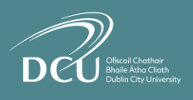About Genetics And Cell Biology in Dublin City University
Why do this course?
The first year of the course is taken in common with other science courses, so you will be studying biology, chemistry, physics, biostatistics and computing.
In Year Two, you’ll develop a deeper understanding of genetics, the biochemistry of the cell and microbiology. You’ll also be introduced to pharmacology and instrumentation.
In the first semester of Year Three, you’ll gain the practical skills and techniques that form the basis of cell and gene technologies. These include gene cloning and bioinformatics (the application of computing in genetic analysis). With this knowledge, you’ll be well prepared for your six-month work experience placement (INTRA).
In the final year, you’ll explore the advances arising from research in genetics and cell biology as well as medical products and the healthcare industry. A significant research project must also be completed.
What opportunities might it lead to?
Understanding how cells work underpins many areas, and so there is huge demand for a workforce with scientific knowledge, particularly in molecular and cellular biology. Your skills in research and development and your ability to undertake management and operational roles will be an added asset.
Areas of employment opportunity include:
- Molecular and Cellular Biology
- Research and Development
- Teaching
Academic qualification equivalents
- Standard 12 through a recognised awarding body with average grades of 80% or above. Please note an average of all subjects studied will be taken. Mathematics and English must be included.
English language requirements (one of the below):
- IELTS for Undergraduate Programmes: Overall score of 6.5 or above, with no less than 6.0 in any one skill.
- TOEFL: Total Score of 92. DCU Business School additionally requires all section scores 21 or above.
- PTE Academic: Minimum score of 63, with no section score below 59
Dublin City University Highlights
| University Type |
Public University |
| Campus Setting |
Urban |
| Establishment Year |
1975 |
| No. of Campuses |
3 |
| No. of Residence Halls |
3 |
| International students |
2,337
71% in UG, 29% in PG courses |
| Research Funding |
~35 million EUR |
| Cost of Attendance |
~22,500 EUR |
| Applications Accepted |
Online/Offline |
| Work-Study |
Available |
| Intake Type |
Semester wise |
| Mode of Program |
Full time and online |
Dublin City University Average Tution fees And Other Expenses
Foreign students who wish to enrol at Dublin City University must be aware of the associated costs in order to budget appropriately and apply for scholarships when needed. The tuition costs for well-known programmes and other expenses related to studying in Ireland are covered below.
Tuition Fee for Dublin City University
Here are the details of the UG and PG fees for international students planning to study at any of the following faculties.
| Programs |
UG (EUR) |
PG (EUR) |
| Engineering |
15,000 |
17,000 |
| Business |
14,000 |
16,000-19,000 |
| Humanities |
15,000 |
15,000 |
| Science |
15,000 |
15,000 |
| Education |
12,600 |
13,700 |
Dublin City University Cost of Living
The cost of living here includes monthly expenses an international student would require to study at Dublin City University:
| Expense |
Monthly Cost (EUR) |
| Rent (On-campus) |
692-1216 |
| Rent (Off-campus) |
850-1300 |
| Food |
250 |
| Travel |
132 |
| Books and Materials |
75 |
| Medical |
45 |
| Miscellaneous |
178 |
| Total |
Approximately 2,222 |

